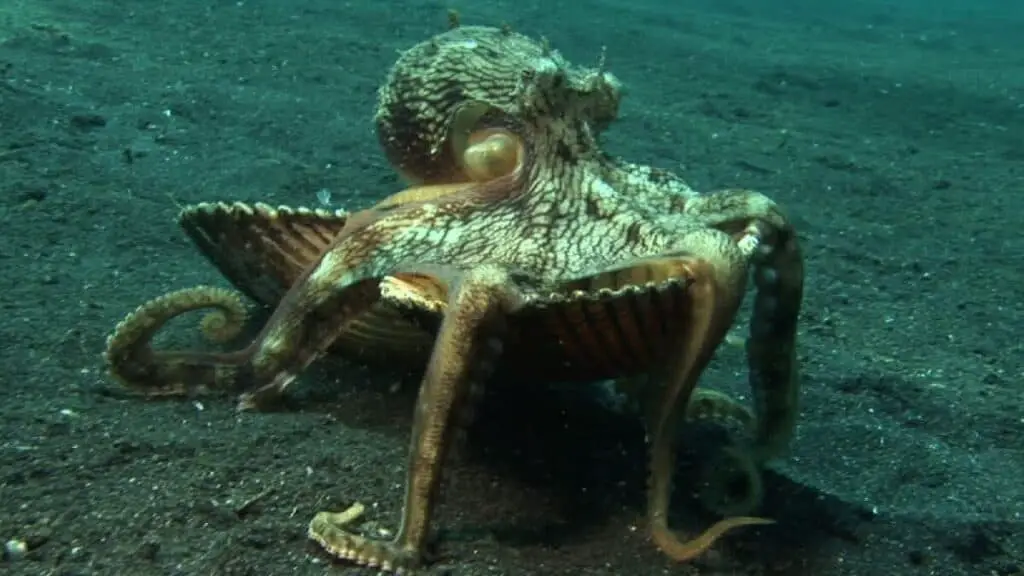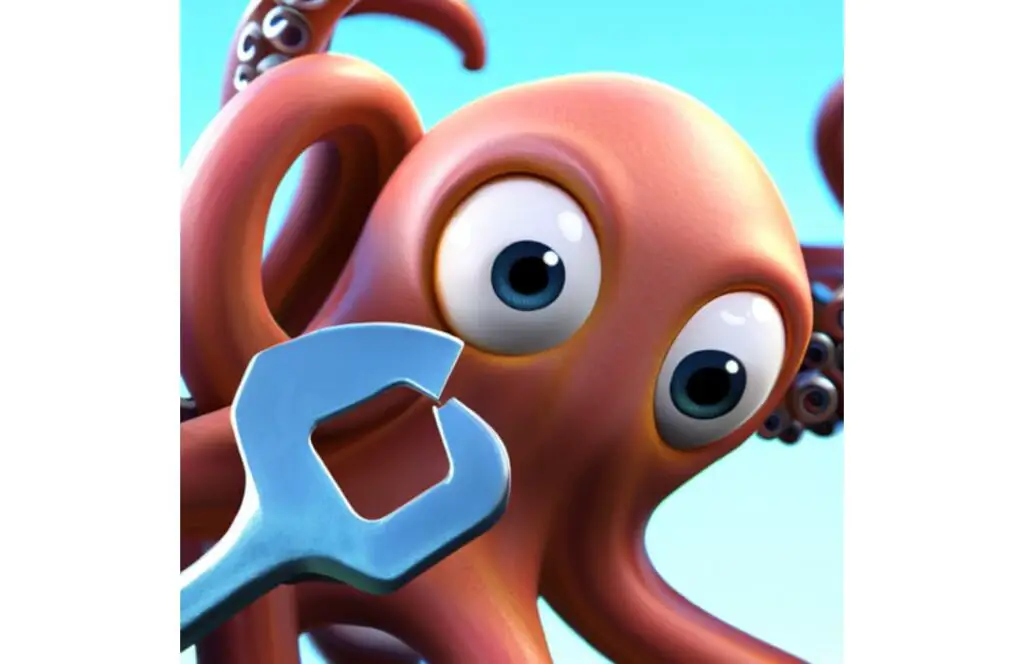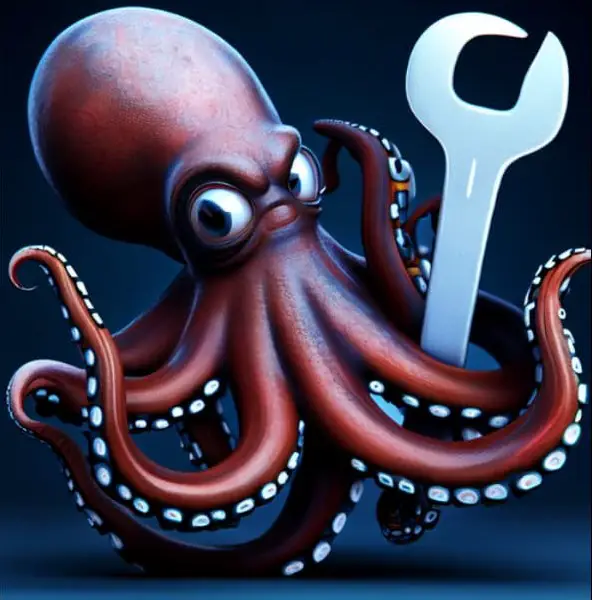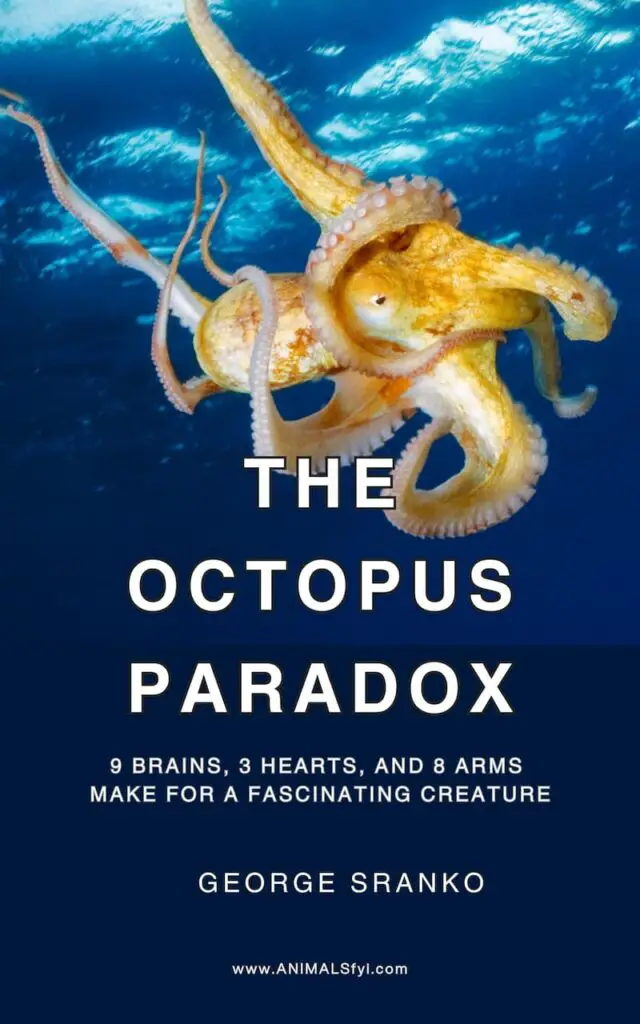Octopuses are among the most intelligent creatures on the planet, with unique abilities and behaviors that have left researchers scratching their heads. So, what makes them so special?
It all starts with their brains. Octopuses have the largest brains of any invertebrate, with more neurons than a dog’s brain. This makes them capable of complex problem-solving, learning, and even displaying personality traits. They’re not just slimy sea creatures – they’re some of the smartest animals on the planet.
Octopus Brains: The Key to Their Intelligence
Octopuses have a complex nervous system with nine brains that allows them to control each of their eight arms independently. This means they can multitask like no other animal on the planet. They can use one arm to hold onto a rock while using another to pry open a shellfish, and that leaves six more to do their bidding!
In addition to their unique nervous system, octopuses have been found to have incredible memory capabilities. They can remember things for months, and even years, which is a level of memory that’s typically only seen in humans.
Researchers have also discovered that octopuses are capable of complex problem-solving. In one study, an octopus was given a clear plastic box with a crab inside, but the box was sealed with a plastic clip. The octopus was able to figure out how to open the clip and retrieve the crab.
Octopus Adaptability: The Key to Their Survival
Octopuses are also incredibly adaptable creatures. They can change color and texture to blend in with their surroundings, making them almost invisible to predators. They can also regrow limbs if they lose one, which is a unique ability that few other animals possess.
This adaptability is a key factor in their survival, allowing them to thrive in a wide range of environments.
Octopus Communication: The Key to Their Social Lives
Despite being solitary creatures, octopuses have a complex social life. They communicate with each other through body language and color changes, and they can even use their arms to communicate through touch and movement. This communication is essential for mating, as well as for avoiding conflicts with other octopuses in their territory.
Octopuses also have a unique way of communicating with potential predators. They can change the color and texture of their skin to blend into their surroundings, making them almost invisible.
They can also puff themselves up to appear larger and more intimidating, or they can release a cloud of ink to confuse their predators and make a quick escape.
Octopus Intelligence: The Key to Their Tool Use
Octopuses are known for their incredible intelligence, which has enabled them to develop a range of unique abilities and behaviors. One of the most fascinating of these is their use of tools.
The first evidence of octopus tool use was discovered in 1991 off the coast of Indonesia, when an octopus was observed using a coconut shell as a makeshift shelter.
Researchers observed veined octopuses carrying coconut shell halves as they moved from place to place. They would then use these shells as shelters to protect themselves from predators. This is a level of problem-solving that’s typically only seen in primates.
Since then, researchers have discovered a number of other examples of octopuses using tools in the wild.
Another example of octopus tool use was observed in a laboratory setting, where researchers gave an octopus a jar with a crab inside. The jar was sealed with a screw-top lid, and the octopus had to figure out how to open it to get to the crab. The octopus was able to unscrew the lid and retrieve the crab, demonstrating a level of intelligence and problem-solving ability that’s rarely seen in the animal kingdom.
These examples of octopus tool use have left researchers in awe, and they’re still trying to understand how these intelligent creatures are able to develop these behaviors. Octopuses manage to learn from their environment and adapt their behavior accordingly.

For example, in the case of the veined octopuses using coconut shells as shelters, researchers believe that these creatures learned to use the shells even though the shells were introduced by humans. The discarded shells had smooth cut edges, and the octopuses were able to recognize their potential as shelters.
In the case of the octopus opening the jar, researchers believe that the octopus was able to figure out how to unscrew the lid by trial and error. In most of these experiments the researchers poke holes in the lid, so the octopus can smell the crab inside…so tantalizingly close! (So close, and yet, it takes brains to figure out how to open that darn lid!)
Octopus use of tools is just another example of the remarkable abilities and behaviors that set them apart from other animals.
How Do We Recognize Tool Use?
One of the most important distinctions for tool use is that there is no advantage to owning a tool unless it is used for its intended function at some point in the future. Hermit crabs, for example, live inside snail shells for safety, yet the shell is not seen as a tool because the shelter is always in use.
The octopus with the coconut shell, on the other hand, is employing a tool since it keeps its half coconut shell ready for a specific reason. Carrying a hefty shell around for the sake of having the shell… until it is required for protection. The shell, as a scientist would say, has an immediate cost with a deferred benefit.

Octopus Evolution: The Key to Their Success
So how did octopuses become so intelligent and adaptable? It’s all down to millions of years of evolution. Octopuses had to adapt to their environment to survive, and their intelligence was a key factor in their success. They’ve developed unique abilities that have helped them thrive in the ocean, from changing color to blend in with their surroundings to using jet propulsion to move quickly through the water.
In recent years, scientists have made some incredible discoveries about octopuses. For example, they’ve found that these creatures are capable of short-term and long-term memory. They can remember things for months, and even years, which is a level of memory that’s typically only seen in humans. Researchers have also found that octopuses are capable of complex problem-solving.
Octopus Evolution: The Mysterious Origins of Intelligent Invertebrates
The evolution of octopuses is a fascinating and mysterious topic that has puzzled scientists for decades. These intelligent invertebrates have a unique set of abilities and behaviors that set them apart from other animals, and their evolutionary history is just as intriguing.
The earliest known octopus-like creature is called Pohlsepia, which lived around 296 million years ago during the Carboniferous period. However, it wasn’t until the Jurassic period, around 150 million years ago, that true octopuses began to emerge.
One of the most remarkable aspects of octopus evolution is their rapid development of intelligence. Octopuses have the largest brains of any invertebrate, with more neurons than a dog’s brain. This makes them capable of complex problem-solving, learning, and even displaying personality traits. But how did they become so intelligent?
One theory is that octopuses evolved their intelligence as a way to adapt to their environment. As they moved from shallow waters to deeper waters, they needed to develop new skills to survive. For example, they needed to be able to change color and texture to blend in with their surroundings, and they needed to be able to navigate complex underwater environments.
Another theory is that octopuses evolved their intelligence as a way to outsmart predators. Octopuses have a number of unique defense mechanisms, such as changing color and texture to blend in with their surroundings, puffing themselves up to appear larger and more intimidating, and releasing a cloud of ink to confuse their predators and make a quick escape.
These defense mechanisms require a high level of intelligence and problem-solving ability.
While the exact origins of octopuses are still a mystery, their rapid evolution of intelligence is a fascinating area of study. The unique abilities and behaviors of octopuses have captured the attention of scientists and the public alike, and there is still much to learn about these mysterious creatures.
Check out my new book “The Octopus Paradox” – full of fascinating facts to amaze you and your friends!
Octopus Conservation: The Key to Their Future
Despite their incredible abilities, octopuses are facing a number of threats. Overfishing, pollution, and climate change are all taking a toll on their populations. That’s why it’s more important than ever to protect these amazing creatures and their habitats.
There are a number of organizations working to protect octopuses and other marine life. From advocating for sustainable fishing practices to lobbying for stronger environmental regulations, these groups are fighting to ensure that octopuses and other sea creatures have a bright future.
Still More to Discover – What Next?
Octopuses are some of the most fascinating and intelligent creatures on the planet. Their unique abilities and behaviors have left researchers in awe, and there’s still so much more to discover about these mysterious creatures.
From their complex nervous system to their incredible adaptability, octopuses are a true marvel of the animal kingdom.
So the next time you’re near the ocean, keep an eye out for these fascinating creatures. Who knows what other secrets they’re hiding? With their incredible intelligence, adaptability, and communication skills, octopuses are sure to continue surprising and amazing us for years to come.


